
The Tangaroa Blue Foundation is an Australia-wide not-for-profit organisation dedicated to the removal and prevention of marine debris. The organisation was founded in 2004 in the South West region of Western Australia and has since developed into a national non-governmental organisation (NGO). What sets this organisation apart is not only their dedication to the removal of marine debris from the environment but their strategic methods of preventing it from entering our waterways in the first place. This is being achieved through the Australian Marine Debris Initiative (AMDI) and the contribution of over 1,100 AMDI partners nationally to an online database of marine debris.
For Heidi Tait, Cofounder and CEO of Tangaroa Blue Foundation, it was the 20 years she spent as a scuba diving instructor that resulted in her passion for the oceans and their protection.
It can feel overwhelming to know that up to 40,000 pieces of plastic are estimated to float in every square kilometre of the ocean, and that over 800 species worldwide are impacted by marine debris.
As divers, this issue is impacting the ecosystems we so love to explore, and to be able to preserve these environments requires action at all levels, from everyday consumers to manufacturers, to policymakers.
Although marine debris is one of the major environmental issues worldwide, it is also one of the easiest to solve – if we are committed. Tangaroa Blue Foundation believes there are three tiers to tackle this problem, and the good news is that we can be involved in each of them.
This story is from the Issue 02 - 2020 edition of Asian Diver.
Start your 7-day Magzter GOLD free trial to access thousands of curated premium stories, and 9,000+ magazines and newspapers.
Already a subscriber ? Sign In
This story is from the Issue 02 - 2020 edition of Asian Diver.
Start your 7-day Magzter GOLD free trial to access thousands of curated premium stories, and 9,000+ magazines and newspapers.
Already a subscriber? Sign In
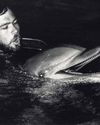
The Sea Specialist: An Interview With Bret Gilliam
Most people learn to crawl before they walk, but there is a man who learned to swim before taking his first steps. Diver, entrepreneur, writer, athlete, maritime specialist – Bret Gilliam is the complete package. Just add water.
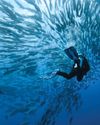
The Best Of Diving In Southeast Asia: Explore The Amazon Of The Seas
Southeast Asia encompasses the world’s most biodiverse reefs and some of the best diving anywhere on the planet. From the tiniest and rarest critters to huge fish schools and the biggest pelagics, the region has it all, and there’s something to suit divers of any level.
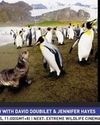
Below With David Doubilet & Jennifer Hayes
Best known for their work with National Geographic, David Doubilet and Jennifer Hayes came together to discuss their work with the youth, and, as Jennifer put it, “submerging with the emerging talent”.
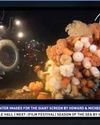
Underwater Images For The Giant Screen
Howard and Michele Hall are best known for their success in underwater IMAX filmmaking.
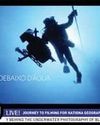
Journey To Filming For National Geographic Wild Brazil
Cristian is an acclaimed and highly versatile Brazilian wildlife filmmaker who works both underwater and topside.
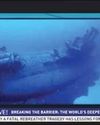
Breaking The Barrier: The World's Deepest Dive
David Strike shared a brilliant presentation about the history of deep diving and how Lt. George Wookey achieved the world’s deepest dive in 1956 using a surface-supplied rebreather.
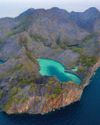
Dive the Golden Land
The Best of Diving In Southeast Asia

OFFICIAL LAUNCH OF BLUE HOPE
Top Session of the Week (14,319 (Views) / 42,831 (Reach)
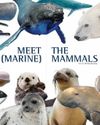
MEET THE (MARINE) MAMMALS
MEET THE (MARINE) MAMMALS

Fashion Faux Pas
What can be done to mitigate the impact of the garment industry on our oceans?